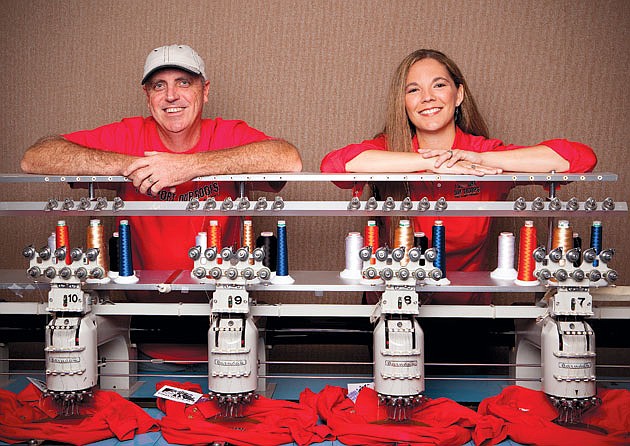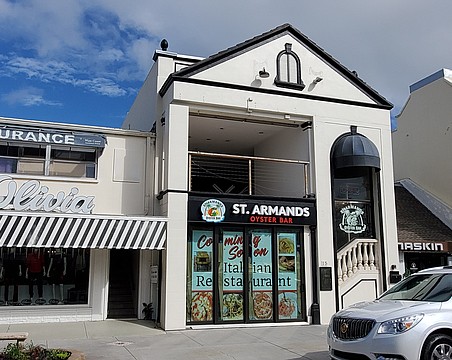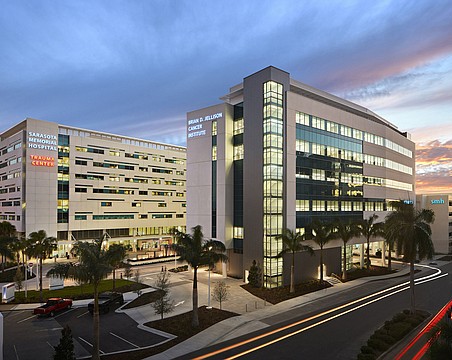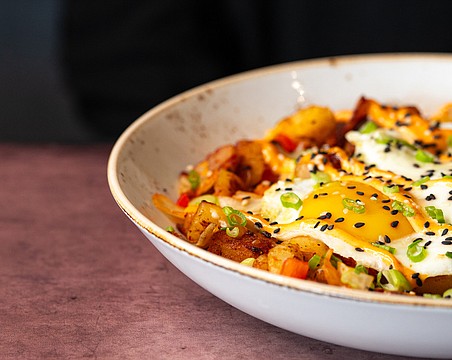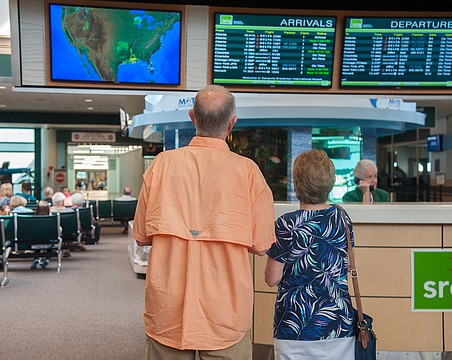A Gulf Coast T-shirt company is surpassing $2 million in sales this year, a notable feat considering the recession slamming retail. Its success is based on a combination of grit, good decision-making and learning from mistakes.
Carmen Manley is a down home Southern girl, born in raised on the Mississippi Gulf Coast. She has just the right mix of spunk in her step and twang in her voice to prove her southern bona fides, not to mention her degree from LSU.
So it's something of a shocker to hear Manley talking up Tony Robbins, the popular self-help author and infomercial guru. Certainly, Robbins' brand of California-style mind over matter teachings doesn't mesh with old-fashioned Southern sensibilities.
But to Manley, who co-owns a T-shirt embroidery and printing business with her husband, Jeff Manley, Robbins' face-slapping approach is a catalyst for her company's recession survival effort. That company, Sarasota-based Koala Tee, is projecting $2.1 million in 2009 sales — up 25% from the company's $1.65 million in 2008 revenues.
“This year is going to be our best year ever,” says Jeff Manley, who took over the business from his father in 1991.
It's a somewhat remarkable feat, considering the recession has hit small retail businesses that provide what many consider wants, not needs, especially hard. Koala has 18 employees, with plans to hire at least five more people in advance of the fall/winter season, which it projects to be its busiest of the year.
“We're not going to slow down and we're not going to quit,” says Manley, remembering the mantra she picked up from seeing Robbins in Orlando a few months ago. “We just have to work lots of nights and lots of weekends.”
Manley, in fact, says she thinks about Robbins' “wall” story almost everyday. The gist of the wall story is this: A good racecar driver knows that he needs to constantly focus on the next curve, not the wall in front of him. If he takes his eyes off the next curve, he will crash right into the wall.
The moral for Manley? She needs to focus on future successes, not past problems.
Still, the Manleys and their business partners at Koala know that success has come, and will come again, from more than just optimistic thinking and positive self-talk. That's where the company's business sense takes over.
For starters, Manley has spent months rebuilding the company's entire Internet brand, both in putting up a new Web site and working on how to turn a Facebook presence into actual sales. The company is also capitalizing on a fortuitous move to buy a niche military base clothing company four years ago.
The latter decision, to buy Life Safety International, has become a big-recession cushion for Koala, as it currently makes up about one-third of the company's annual revenues. The highlight of the line is its Red Shirt Friday campaign, which is focused around red shirts with an “I support the troops” message.
Content control
Finally, Koala, in its biggest “what recession?” push, is making a concentrated effort to become the all-everything marketing stop when it comes to promotional materials for other businesses. It's doing this despite the economic downturn, for which Jeff Manley concedes: “Promotions are the first thing to be cut from a budget.”
Nonetheless, Carmen Manley can point to Gyrocam, a $183 million Sarasota-based company that was bought by Lockheed Martin July 22, as proof of the power of merchandise marketing: Koala made all the promotional items for
Gyrocam over the past few years, from T-shirts and sweat shirts to golf balls and day planners, all emblazoned with a company logo.
Executives at Gyrocam, which manufactures cameras that can be stabilized above a vehicle to detect bombs and other hazards, say the uniformity in the company's marketing presence was a subtle, yet integral part of the process that ultimately led to the deal with Lockheed. The Koala-made products helped distinguish Gyrocam from other firms at national trade shows and other functions.
Says Manley: “That's what we want to do for [other companies.]”
Of course, lots of marketing and branding companies want to do that and lots say they can do it as good as Koala. Manley hopes that Koala will gain a small boost in the marketplace from recently winning a regional award for products and service from a Washington D.C. lobbying group.
Manley has also spent considerable time redoing the company's approach to the Internet. Koala's past two Web sites left the company with a two-fold problem: The site wasn't generating many sales and what's worse, the designers of the site, freelance contractors, controlled the content. That made making changes and upgrades costly and time-consuming.
Manley's biggest lesson in the Web, therefore, has been to take control. For Koala's third Web site, she worked with a small firm in Sarasota, but kept ownership of the ability to make product and content changes.
The new and improved Koala Tee Web site launched in August. “This site just gives us a more professional look,” says Manley. “It lets people know we're not a mom-and-pop or working out of our garage.”
Manley also recently began filling her Facebook postings with updates about the company. That dialogue has led to several big sales recently, including a 600-shirt order for a hospital in Alabama and a 400-shirt order for a Bible camp in Texas.
Big expansion
Jeff Manley's father, who had been in the trophy business, founded Koala Tee in 1983. The senior Manley first expanded to uniforms and then, after buying a manual printer, expanded to wholesale T-shirts.
Today, the company does all of its printing and embroidery work out of an 11,000-square-foot facility in an industrial area near downtown Sarasota. Carmen Manley joined the company in 2000 after relocating to the area from Mississippi.
But despite Manley's fine-tuned plan for how to combat the recession, it turns out that one of Koala Tee's best moves came from something that was more of a fluke. That was the day in 2005 when the owner of Life Safety International walked into Koala's office.
The clothing line operator, who had built a successful niche business in selling shirts on Army and Air Force bases, had a falling out with his T-shirt printer in Bradenton and needed a new partner. Better yet, the walk-in entrepreneur wanted to get out of the travel-heavy business anyway and was hoping Koala would want to get in it.
“It was a good way for us to diversify,” says Jeff Manley, knowing that the then-boom times weren't going to last forever. “We have taken it and expanded it.”
Koala now designs, manufactures and sells shirts in hundreds of military bases worldwide. Barry Fox, a partner with Jeff Manley in Koala and some other business ventures, travels to bases in the United States, Japan and Korea to sell the shirts. Koala also recently added a second team to handle more domestic military base sales.
But the biggest expansion of the line has been Red Shirt Fridays. That was an idea born of a chain e-mail Carmen Manley received not long after Koala bought Life Safety. The e-mail encouraged people to support American soldiers fighting overseas by wearing red shirts.
“Since we had the military contract,” says Manley, “we thought we could absolutely do that.”
But selling T-shirts on a military base, no matter the color, isn't without its challenges. The process is much like it is for an entrepreneur who wants to get his products into Wal-Mart, the Manleys say. There are many rules and regulations, certain copyrights can't be infringed and, finally, if shirts aren't sold, they have to be bought back.
As such, the company has kept the portfolio of shirt designs simple, so that it can appeal to both soldiers and soldiers' families. It's an approach that appears to be working, especially with Red Shirt Friday, which Jeff Manley says is the company's best seller — by far.
And Carmen Manley, putting on her best think-big Tony Robbins style, says she can envision the Red Shirt Friday line and concept growing exponentially someday. She hopes that it ultimately goes from being trendy to being a big “staple in families' closets.”

